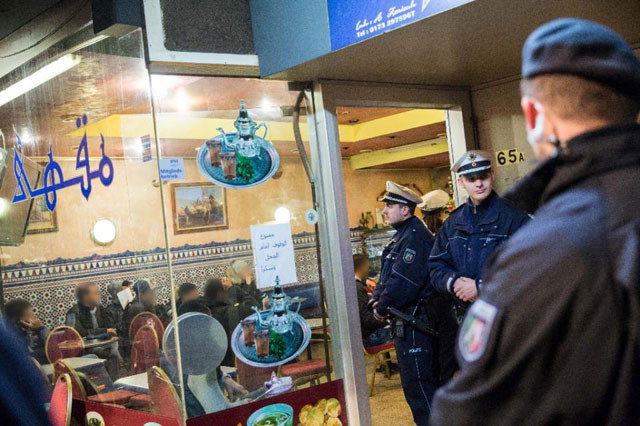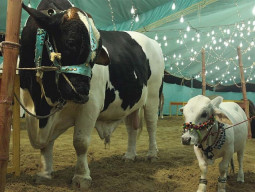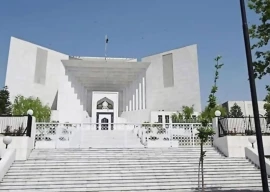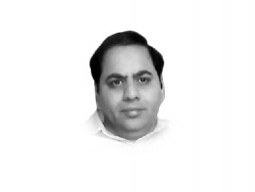
The 13-year-old girl had gone missing in Berlin, reportedly on her way to school, on January 11.
She subsequently returned and filed a police report, with her parents telling investigators she was kidnapped by three men at the railway station of Mahlensdorf in eastern Berlin.
The girl described the men as coming from "southern countries and speaking broken German", and said they drove her to an apartment where they raped and beat her, according to German media reports.
German probe blames migrants for New Year's Eve violence
The report has sparked outrage and allegations of an official cover-up, likened to initial police silence over a spate of sex assaults during New Year's festivities in Cologne that was blamed on asylum seekers and migrants.
Police said on Tuesday that "investigations show there was neither a kidnapping nor a rape".
"We appeal to you to handle the issue sensitively in social networks," police said in a statement posted on Facebook.
But the far-right and Russian media rejected the police findings, claiming instead that authorities were covering up the crime.
The neo-Nazi party NPD jumped on the case to bolster its attacks against refugees.
"I am starting to think that we need a citizen police, because neither politicians nor the police are helping or on the side of the people," one writer wrote on the NPD page.
Russian public broadcaster Pervyi Kanal quoted the teenager's uncle as saying that "it's a police cover-up. They put pressure on her to say that she wanted that, that she had seduced these poor guys".
Merkel wants expulsion rules toughened after Cologne sex assaults
The pro-Kremlin NTV went as far as to claim that "in Germany and in Sweden, residents are regularly raped by refugees, there are several cases of sexual assault but local authorities and police hide these facts and do not open criminal investigations".
The New Year's rampage in Cologne blamed on men of North African or Arab appearance has darkened the mood on a record refugee influx in Germany, and raised questions on whether Europe's biggest economy will manage to integrate the 1.1 million asylum seekers who arrived in 2015.

















COMMENTS
Comments are moderated and generally will be posted if they are on-topic and not abusive.
For more information, please see our Comments FAQ